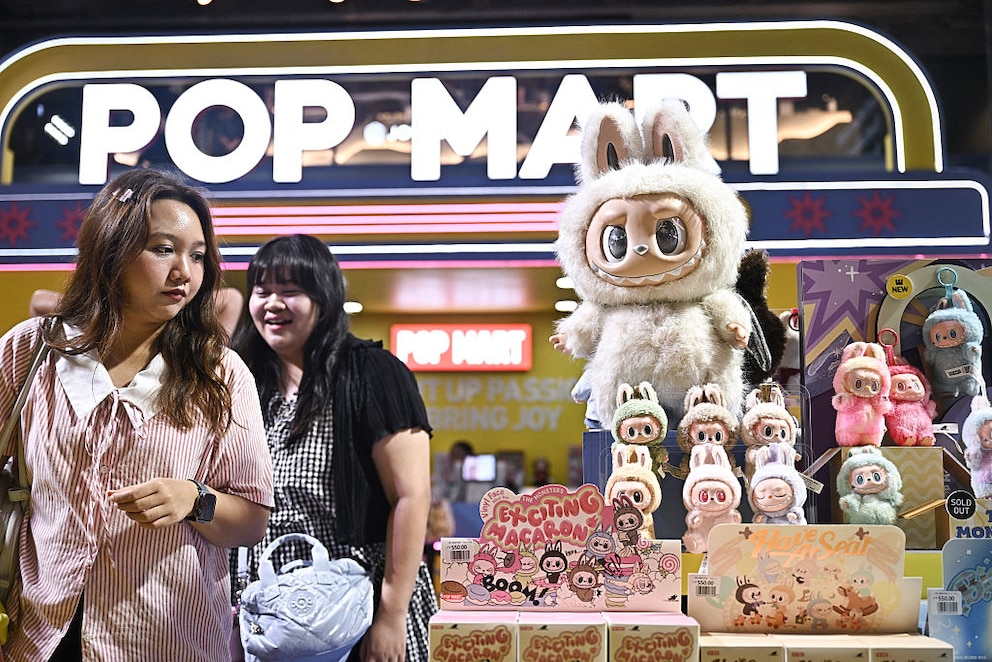May 10, 2025, 2:36 pm | Read time: 3 minutes
The latest craze from Asia is now shaking up our bags—literally! If you’re scrolling through Instagram, you can hardly miss the plush toy “Labubu.” We’ll reveal what this quirky toy has to do with fashion right here.
He wears rabbit ears, has a mischievous grin, and makes even the coolest It-bag look outdated—meet Labubu, the cutest accessory trend the fashion world has seen in years. Originally from the world of designer toys, this colorful little figure has quickly transformed from a trend in China to a global obsession. Whether as a collectible or a bag charm, Labubu is everywhere right now.
Overview
From the Toy Shelf to the Front Row
The Chinese company Pop Mart designed Labubu as a collectible figure, but you can now find this cheeky character not only in display cases but especially hanging from the handbags of the fashion elite. Singer Rihanna has been spotted with a Labubu on her Louis Vuitton, and K-Pop star Lisa from Blackpink proudly shows off her collection on Instagram. No wonder the stylish figures are now even considered fashionable good luck charms.
What used to be the It-bag charm is now the Labubu effect: The rarer, the more coveted. And yes, there are entire collections—from pirate Labubu to the fairy tale edition. To snag a special model, you’ll need patience, nerves, and a knack for online drops.
Also interesting: How to Give Your Handbag That Certain Something with Bag Charms
The Business of the Grin
Pop Mart, the company behind Labubu, is currently the high-flyer of the toy industry—and on a grand scale. Founder Wang Ning reportedly became $1.6 billion richer in a single day, according to “Forbes.” The reason: The Pop Mart app was recently the most downloaded shopping app in the U.S.
Pop Mart now generates about 40 percent of its revenue outside China, with demand in the U.S. skyrocketing. People line up overnight outside stores just to snag a limited Labubu box. And that’s despite the figures being about 60 percent more expensive in America than in Asia.

Why Everyone Loves Labubu
He’s cute, cheeky, and always a little different—just like every fashionista who prides themselves on their style. With Labubu, you show not only trend awareness but also a certain irony in the fashion circus: Amid luxury labels, sneaker drops, and designer collaborations, the little rabbit brings a charming playfulness back to the looks.
And honestly: When was the last time something reminded you so much of your childhood—and at the same time perfectly matched your Y2K handbag?

Anna Wintour Steps Down as ‘Vogue’ Editor-in-Chief After 37 Years

4 Ways to Style Muslin Blouses Correctly

Festival Outfits Suitable for Any Weather
Warning: Addictive Potential
Collecting Labubu figures is not for the faint-hearted. Each little figure comes in a “Blind Box,” meaning you never know which Labubu you’ll get. The hunt for the ultra-rare model becomes a gamble—with trading forums, group chats, and black market prices.
But that’s exactly what makes it so appealing: Labubu is not just a product. It’s a lifestyle—somewhere between pop culture, fashion, and nostalgia.



